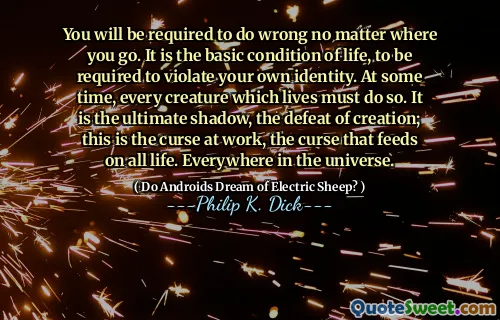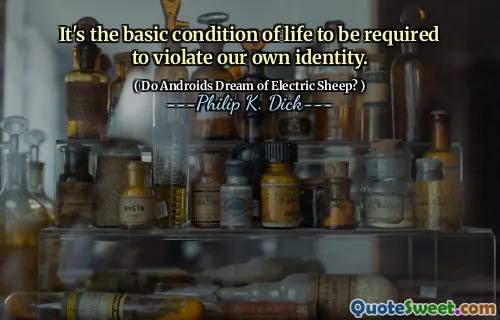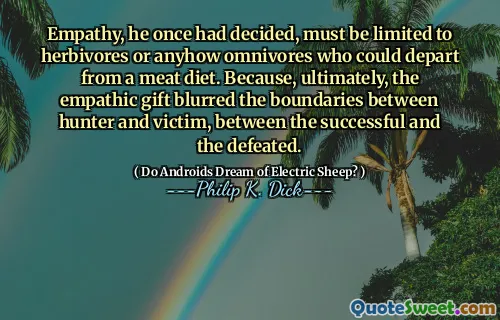
within him an actual hatred once more manifested itself toward his electric sheep, which he had to tend, had to care about, as if it lived. The tyranny of an object, he thought. It doesn't know I exist.
In Philip K. Dick's "Do Androids Dream of Electric Sheep?", the protagonist experiences a profound conflict regarding the artificial sheep he is responsible for. His feelings of resentment toward the electric sheep emerge from the recognition that these synthetic beings, which he must nurture and care for, are entirely indifferent to his existence. This highlights a deeper theme of alienation and the burden of emotional investment in artificial entities that lack true consciousness. This dynamic encapsulates the struggle between the human desire for connection and the cold reality of interacting with objects that do not reciprocate those feelings. The protagonist’s realization evokes a sense of tyranny imposed by the very object of his care, suggesting a complex interplay of love, hatred, and existential contemplation about what it means to care for something that cannot truly acknowledge him.
In Philip K. Dick's "Do Androids Dream of Electric Sheep?", the protagonist experiences a profound conflict regarding the artificial sheep he is responsible for. His feelings of resentment toward the electric sheep emerge from the recognition that these synthetic beings, which he must nurture and care for, are entirely indifferent to his existence. This highlights a deeper theme of alienation and the burden of emotional investment in artificial entities that lack true consciousness.
This dynamic encapsulates the struggle between the human desire for connection and the cold reality of interacting with objects that do not reciprocate those feelings. The protagonist’s realization evokes a sense of tyranny imposed by the very object of his care, suggesting a complex interplay of love, hatred, and existential contemplation about what it means to care for something that cannot truly acknowledge him.











